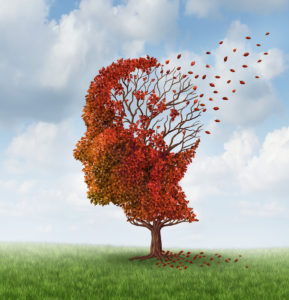How Seniors Can Avoid Misdiagnosis
By Helene M. Epstein

An old joke goes, aging is a question of mind over matter. If you don’t mind, it doesn’t matter. However, it matters very much when aging gets in the way of an accurate diagnosis.
Seniors are misdiagnosed more often than younger adults and can be harmed more by it than younger bodies are. While it is estimated that everyone will experience at least one diagnostic error in their lifetime, experts believe it happens more frequently for older patients. The barriers to getting properly diagnosed can occur at any age but they tend to worsen as the patient gets older (and some seniors joke, as the doctor gets comparatively younger).
Of course, there’s no diagnostic cliff that dumps us when we turn 65; it’s a gradual slope and each path is unique. Patrick P. Coll, MD notes, “If you’ve examined one 75-year-old, you’ve examined one 75-year-old.” As the Medical Director for Senior Health at UConn Health and a Professor at the University of Connecticut School of Medicine, Dr. Coll knows that no two seniors are the same medically, cognitively, or physically. Each new patient comes with a lifetime of experiences, skills, and strengths, and with a wide range of abilities and challenges.
Robert Trowbridge, MD agrees. “The important thing to recognize with older patients is that there’s a lot more complexity involved in caring for them.” Dr. Trowbridge is the Director of Undergraduate Medical Curriculum at Maine Medical Center. He is also the former President of the Board of Directors for the Society to Improve Diagnosis in Medicine (SIDM).
If you’re a senior, or caring for one, recognize that older patients’ evolving physical and mental deficits play a role in getting misdiagnosed. So do healthcare professionals’ perceptions, training, and biases. Even common conditions can be misdiagnosed. A recent literature review of over 900 studies identified six common diseases that were significantly misdiagnosed for seniors, meaning they were either overdiagnosed (the patient didn’t have the condition but was treated for it) or underdiagnosed (the patient was not treated for this condition though he had it) or both. Overall, the top six are chronic obstructive pulmonary disease (COPD), dementia, Parkinson’s Disease, heart failure, stroke/transient ischemic attack, and acute myocardial infarction.
How does the aging process contribute to misdiagnosis?
The diagnostic process depends on the ability to communicate. In seniors this sometimes presents a challenge. The first important step in a diagnosis is the medical history. This includes reviewing current prescriptions and drug allergies, current and past medical conditions. The process also entails a discussion of any new concerning symptoms and a thorough physical exam to develop a list of possible diagnoses.
“Sometimes, when patients are older, we have difficulties communicating with them, especially in terms of hearing,” Dr. Trowbridge says. If you or your loved one has uncorrected physical deficits like hearing loss, vision impairment, or difficulty writing, the history may be incorrect due to missing or wrong information.
 Memory also plays a major role in getting a full history. The patient may be physically able to fill out the form but may forget relevant details. Memory loss can hinder older patients’ ability to track symptoms and pain levels, or to describe them in ways the doctor or nurse can address. If the senior is dealing with any level of dementia, their memory as well as their personal records of prior medical visits, medications, and tracking of symptoms may be disorganized and filled with holes. Each of these can derail the search for a diagnosis.
Memory also plays a major role in getting a full history. The patient may be physically able to fill out the form but may forget relevant details. Memory loss can hinder older patients’ ability to track symptoms and pain levels, or to describe them in ways the doctor or nurse can address. If the senior is dealing with any level of dementia, their memory as well as their personal records of prior medical visits, medications, and tracking of symptoms may be disorganized and filled with holes. Each of these can derail the search for a diagnosis.
Memory is also key to the second and third stages of diagnosis: testing and treatment. As we discussed in detail in earlier columns, diagnosis is a process consisting of many steps. It works best when the patient is an active participant in their own medical team, and has the ability and willingness to follow instructions. If a patient has problems recalling directions –– like what tests have been ordered, when and where to go, and how to prepare for the test –– the process of getting an accurate diagnosis gets interrupted. If they can’t remember the treatment plan –– what medications to take, when and how, foods and vitamins to avoid –– the diagnosis gets more challenging. When treatment plans aren’t followed, it’s unclear if new or worsening symptoms are due to the disease progressing or if they signal a new condition.
Cultural and generational issues are another barrier to communication. Many older people learned to be overly deferential to their doctors. Perhaps they’re uncomfortable advocating for themselves, asking for more information, or correcting errors. Unfamiliarity with medical settings can also create feelings of insecurity and anxiety.

Lastly, one of the more common causes of misdiagnosis for seniors may be surprising. Seniors tend to take more medications than younger people. There are two potential problems to watch out for. The first is that every medicine has side effects. The second is that medicines can interact with one another and cause additional side effects or new medical problems. According to Chad Boult, MD, “medication’s side effects mask or make it difficult to diagnose a new problem, or they are the cause of the new problem.” Dr. Boult is a geriatrician and the Medical Director of Medical Education at St. Alphonsus Health System in Boise, Idaho.
Dr. Coll warns, “The more medications you take at a time, the more opportunity for issues to arise.” The Beers Criteria for Potentially Inappropriate Use in Older Adults lists medications older patients should try to avoid because of their side effects or potential for interactions. A well-trained physician should be able to separate side effects from new organic symptoms but it’s not always immediately evident and can be very difficult to do. Sometimes the doctor ends up chasing the symptoms with new medications which have their own side effects. This is called a cascade of symptoms.
How does doctors’ training and experience contribute to misdiagnosis?
Not every medical practice is prepared to handle the issues of aging. Approximately one-third of seniors say their “preferences were only rarely or sometimes taken into account.” That had a measurable impact on their health and willingness to follow instructions.
Geriatrics is the branch of medicine that specializes in the health of older patients. It’s a relatively young specialty, less than 100 years old. People are living longer so there’s a growing demand for geriatricians. The current US population of people 65-years-old and older is 16.9 percent, almost double what it was sixty-five years ago when our newest seniors were born.
Unfortunately, there is a shortage of geriatricians. According to various sources, we currently have only 16 to 30 percent of the geriatricians required now and demand continues to grow. About one-third of seniors need a geriatrician; primarily those over 80 or who have more than one medical issue associated with aging.
 The diagnostic approach differs greatly between the average geriatrician and the average internist or general practitioner. Dr. Coll says that geriatricians spend more time with patients, especially on a first visit, because they are as concerned with a patient’s baseline ability to function well as they are with any medical issue. He wants to know “where they live, who they live with, what support systems do they have, is family involved, and what they can do and don’t do.” In his practice, he’ll spend up to an hour with a new patient and half an hour for follow-up visits.
The diagnostic approach differs greatly between the average geriatrician and the average internist or general practitioner. Dr. Coll says that geriatricians spend more time with patients, especially on a first visit, because they are as concerned with a patient’s baseline ability to function well as they are with any medical issue. He wants to know “where they live, who they live with, what support systems do they have, is family involved, and what they can do and don’t do.” In his practice, he’ll spend up to an hour with a new patient and half an hour for follow-up visits.
Primary care physicians and internists are also trained to treat all adults but may need specialized training to care for older seniors. Dr. Trowbridge notes that “patients come in with three or more underlying issues and it can be really difficult to sort out which of those may or may not be contributing to their current issues.” Doctors should know how to interpret test results for older patients. What may be a worrisome blood pressure measure for an otherwise healthy 35-year-old, may be a good measure for an 80-year-old on treatment for high blood pressure. Some healthcare professionals with few seniors in their practice may anchor on diseases associated with aging and miss more universal ones, like infection or cancer.
Physicians should be discussing functional and life issues with seniors as well as medical concerns. For example, seniors have different dietary needs than younger stronger bodies. They require fewer calories which can lead to a shortage of necessary nutrients. On the other hand, loss of appetite and weight can be caused by several serious and life threatening diseases, as well as medication interactions. Drug interactions may affect kidney or liver function, sleep, hearing, mood, and memory.
Misdiagnosis of dementia, for example, is so common, Dr. Boult says “the error more often occurs in the brain of the provider rather than the patient.” Dementia is the loss of mental functions which affects everyday life. Alzheimer’s Disease is one type of dementia. Physicians shouldn’t diagnose dementia without testing for alternative causes, like potential drug side effects or interactions. Delirium is often misdiagnosed as dementia, but the difference is that delirium occurs suddenly and can often stop, usually with treatment. There are several other conditions that can impair a patient’s memory, their ability to concentrate, or mimic other kinds of dementia. Head trauma, urinary tract infections (UTIs), Lyme Disease, even dehydration or low B12 levels can be mistaken for dementia.
Steps you can take to get an accurate diagnosis
The challenge for seniors –– and their caregivers –– is to identify where the shortfalls may be. How is the patient’s ability to share their medical concerns accurately and completely? Where are the current healthcare practice’s blind spots? There are steps patients and their support team can take when they visit their doctor, before, during, and after. Ask yourself these questions:
Are you capable?
In the search for a diagnosis, it’s good if older patients can participate as a partner in their own medical team. If they can’t, then hopefully a family member, close friend, or patient advocate can join the team as a support player. This needs to be decided before a doctor visit.
Are you alone?
It’s a good idea at any age to bring a “second set of ears” with you. Arrange it before the appointment. Of course, if your support team can’t attend a doctor’s visit in person, they can listen in to the consult by phone or video chat.
Are you prepared?
During your appointment, your time is limited. So, you must be organized. Dr. Boult notes that “patients often don’t know how to present information; they may over-describe or forget details due to anxiety.” Try this free Patient Toolkit before your next medical visit. It will help you gather all the necessary information before you meet with your doctor as well as help you concisely but thoroughly describe your symptoms. If you’re a caregiver, help your loved one fill out the form. That way, you can “make sure the clinician actually understands what the patient is saying,” says Dr. Trowbridge. “And that they’re able to get their story across.”
Are you clear?
Do you understand the instructions provided by the medical team? Do you know what you need to do next? If not, ask the doctor or nurse to write it down for you. Feel free to ask questions before you leave. If you have more questions when you get home, it’s okay to call the practice and ask for more information.
Are you connected?
Most practices offer patients an online tool to keep track of their health and the doctor’s instructions, called a patient portal. Sign up for it and check it after the appointment for accuracy. It will help you confirm the doctor heard what you said as well as doublecheck you fully understood her instructions. Dr. Trowbridge notes that patient portals are “grossly underutilized” by patients. Health professionals may also have low expectations of seniors’ tech abilities so they don’t even offer them the opportunity to create an account.
If you aren’t computer literate or just uncomfortable, “having family members help navigate the health system, both in terms of the patient’s message and the clinician’s, is key,” says Dr. Trowbridge. “But they can’t always be there…so having the portal allows their involvement or oversight” when it’s more convenient for them. Caregivers, you can ask the medical practice to email you a link so you can set the portal up.
Does the doctor “get you”?
If you have doubts about the ability of your current medical team to handle your health as you age, talk to them first. The John A Hartford Foundation offers a guide to discuss age-friendly care with your doctor. If you feel your symptoms aren’t improving, or that your concerns are dismissed or ignored by your current practice, it’s time to get a second opinion or find a new practice.
Is there a better alternative?
If you’ve decided to switch to a geriatric practice, speak first to your current doctor for a referral to one in your community. The American Geriatrics Society has a search tool which lists healthcare professionals who specialize in older adults by state and city. If there are no geriatricians in your area, ask friends who they prefer.
For caregivers and family members:
You play an essential role in filling in missing details, especially during a medical crisis that brings your loved one to the emergency room. It helps to fine-tune what the medical team sees. Tell them about the patient’s baseline life and health before the current issues arose. Put it into context for them. For example, “My father was actively involved in the community and a news junkie. He loved playing golf and he suddenly seems listless and unengaged.”
If you notice a senior’s sudden onset of dementia, or personality change, or movement disorder, you should inform their physician. Yes, it may be due to stroke or an organic medical condition but it’s also likely to be caused by a new medication, too much of a medication, or a drug interaction. HealthyAging.org has lots of reliable information about medical conditions, prevention, wellness, medications, and much more.
Misdiagnoses are common. They can be catastrophic. The most important thing you can do, as a senior or someone who loves one, is to stay alert and aware of changes: physical, mood, and abilities. Don’t assume any change is a natural part of aging and don’t be afraid to be dismissed. Advocate for yourself –– for your loved one –– and be open to changing medical practices if necessary. Visit the landing page for past Dx IQ columns for more helpful advice.
The Society to Improve Diagnosis in Medicine (SIDM) catalyzes and leads change to improve diagnosis and eliminate harm from diagnostic error. We work in partnership with patients, their families, the healthcare community, and every interested stakeholder. SIDM is the only organization focused solely on the problem of diagnostic error and improving the accuracy and timeliness of diagnosis. In 2015, SIDM established the Coalition to Improve Diagnosis, to increase awareness and actions that improve diagnosis. Members of the Coalition represent hundreds of thousands of healthcare providers and patients—and the leading health organizations and government agencies involved in patient care. Together, we work to find solutions that enhance diagnostic safety and quality, reduce harm, and ultimately, ensure better health outcomes for patients. Visit our website and follow us on Twitter or Facebook.
Helene M. Epstein writes about patient safety and family health. Her goal is to help readers apply important new information to their own lives. Subscribe to her website and follow her on Twitter, Facebook, and YouTube.
Dx IQ is made possible with funding from the Mont Fund and the Gordon and Betty Moore Foundation.

This work is licensed under a Creative Commons Attribution-NonCommercial-NoDerivatives 4.0 International License.
Republish our Dx IQ articles for free, online or in print, under Creative Commons license. Please do not edit the piece. Ensure that you attribute the author and mention that the article was originally published by the Society to Improve Diagnosis in Medicine. If you republish, we’d love for you to let us know by sending an email to info@improvediagnosis.org.
Resources for Patients
At SIDM, we are focused on raising awareness about the magnitude and impact of diagnostic errors as providing tools and resources to equip patients to participate in achieving an accurate and timely diagnosis.

